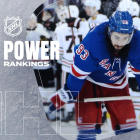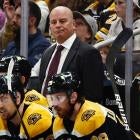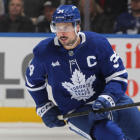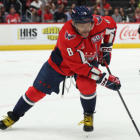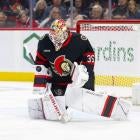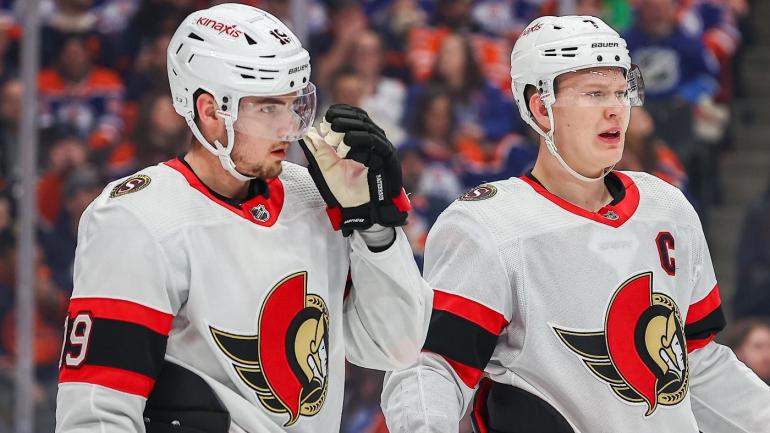
Going into the 2023-24 season, many in Ottawa hoped the Senators would take the next step and compete for a playoff spot. Instead, the Sens are 15th in the Eastern Conference, six games below .500, and have already made a coaching change. How did things go south so quickly in Ottawa?
The Senators have a roster full of youth and talent, which should be a winning combination in today's NHL. They even fooled some people into picking them to win a playoff series in preseason bold predictions. Barring a major miracle, Ottawa won't sniff the postseason, let alone win a round.
That is fairly disappointing given how the Senators look on paper. Brady Tkachuk, Tim Stützle, Josh Norris, Drake Batherson, Thomas Chabot, Jakob Chychrun and Jake Sanderson are all promising young players aged 26 or younger. There's a reason Ottawa wound up at No. 2 on our list of the best young cores in the NHL.
As it turns out, that group isn't ready for prime time yet, and there are a few reasons for that. Ottawa is one of the worst defensive teams in the league, the special teams haven't contributed much at all, and the goaltending has left a lot to be desired.
Let's take a deeper look at how the Senators went from playoff dark horses to bottom feeders in a matter of months.
Defense
If defense wins championships, then it's no surprise the Senators seem miles from winning a Stanley Cup. Ottawa struggles to keep opponents from lighting up the scoreboard, and that completely erases all the good work the team does on the offensive end.
As a team, the Senators rank 22nd in goals against (155) and 25th in xGA/60 at five-on-five (2.73), per Natural Stat Trick. Their company in the former category consists of the Buffalo Sabres and New York Islanders, and their neighbors in the latter category include the Anaheim Ducks and Washington Capitals. That is not playoff-caliber company.
Perhaps the most concerning thing about the general lack of defense in Ottawa is that some of the team's most important forwards are the biggest offenders. The Senators are surrendering scoring chances at a high rate when players like Tkachuk, Batherson, Norris, Claude Giroux or Vladimir Tarasenko are on the ice.
In the cases of Tkachuk and Giroux, they are still net positives because of what they generate offensively -- but not by much. The rest of the aforementioned forwards are doing more harm than good. That puts the Sens in a bind because a key component to scoring goals is playing your most skilled forwards, but when those forwards have issues playing without the puck, there are diminishing returns.
Of course, the forwards could be a little more free-wheeling if Ottawa's blue line was rock solid. If you hadn't guessed by now, that is not the case.
When it comes to the Senators' defensemen, Sanderson and Artem Zub have been relatively effective at five-on-five, but the list ends there. Chabot and Chychrun have both been treading water, posting five-on-five expected goals shares of 50.9% and 49.2%, respectively. You would prefer a duo making $12.6 million per season control play a little bit more than that.
If Chabot and Chychrun have been somewhat underwhelming, Travis Hamonic and Jacob Bernard-Docker have been complete messes this season. With Bernard-Docker on the ice at five, the Sens are giving up 2.84 xGA/60, according to Natural Stat Trick. That is pretty poor, but it's better than the abysmal 3.24 xGA/60 Ottawa is surrendering with Hamonic in those situations.
The numbers aren't good for Ottawa's defense, but the eye test is just as bad, if not worse. In many of the Senators' losses, they make big mistakes in critical areas of the ice, like coughing up the puck at their own blue line. Those result in Grade A scoring chances for the opponent, which often end up in the back of the net.
The kid can shoot, confirmed. pic.twitter.com/NlitsKQef2
— Calgary Flames (@NHLFlames) January 10, 2024
The Senators do have some decent firepower offensively, and they score 3.07 goals/60 at five-on-five, the second highest rate in the league. That should be good enough to put Ottawa in playoff contention, but the Senators cough up 3.1 goals/60, which ranks 30th. Giving more than you get is often a good quality to have, but it's not a good recipe for winning hockey games.
Special teams
Teams can survive without elite five-on-five play as long as they have strong special teams units and solid goaltending -- just ask the New York Rangers. The Senators have neither of those, and we'll start with special teams.
After reviewing Ottawa's issues without the puck, it's probably not a shock to find out the team's penalty kill ranks 30th with a success rate of 73.6%. According to Natural Stat Trick, the Sens give up a whopping 10.3 xGA/60 while shorthanded, and that ranks 31st in the NHL. The Senators don't take many penalties, but the ones they do take cost them dearly.
While the subpar penalty kill numbers might be expected, the Senators' anemic power play is pretty discouraging. Ottawa has converted on a whopping 15.1% of its power plays, good for 24th in the NHL. Given the amount of offensive skill the Sens have at their disposal, that is extremely low.
My initial thought was the Senators are the victims of poor puck luck on the man advantage, but that isn't necessarily the case. Their power play shooting percentage is just 9.88%, and I would expect a unit consisting of Tkachuk, Stützle, Norris and Giroux to score at a higher clip than that. Then again, the Senators' power play is generating high-danger scoring chances at the 24th highest rate in the league. That lack of quality might explain those shooting woes.
Goaltending
If all else fails, good goaltending can be the ultimate equalizer in hockey. To the Senators' credit, they did make an attempt to improve that position in the offseason, signing Joonas Korpisalo to a five-year contract worth $25 million.
Unfortunately, that contract has already aged poorly. Korpisalo ranks near the bottom of the league in several categories.
Korpisalo has allowed 12.4 goals above average, which ranks 87th out of the 91 eligible goaltenders, per Natural Stat Trick. His .796 high-danger save percentage puts him at 57th. That is not what Ottawa thought it was getting when it signed Korpisalo last summer.
With Korpisalo struggling, the Senators haven't been able to find an adequate replacement. Anton Forsberg, who recently suffered an injury, was also struggling between the pipes. His 6.25 goals saved above average rank 76th, just 11 spots higher than Korpisalo.
In fairness to Korpisalo, going from the Los Angeles Kings to the Senators is a big enough shift to cause whiplash. The 2022-23 Kings were an elite defensive squad, and this year's Senators are very much at the opposite end of the spectrum. There is already an adjustment period for goaltenders who change teams, but that's especially the case for Korpisalo. Perhaps he can get back on track as the season progresses and build some confidence for the 2024-25 campaign.
Having said all that, neither Korpisalo nor Forsberg have been good enough, even considering the Sens' defensive struggles. Great goaltending can elevate a mediocre team into the playoff picture, but Ottawa hasn't been able to get enough key saves to cover up its other flaws.








